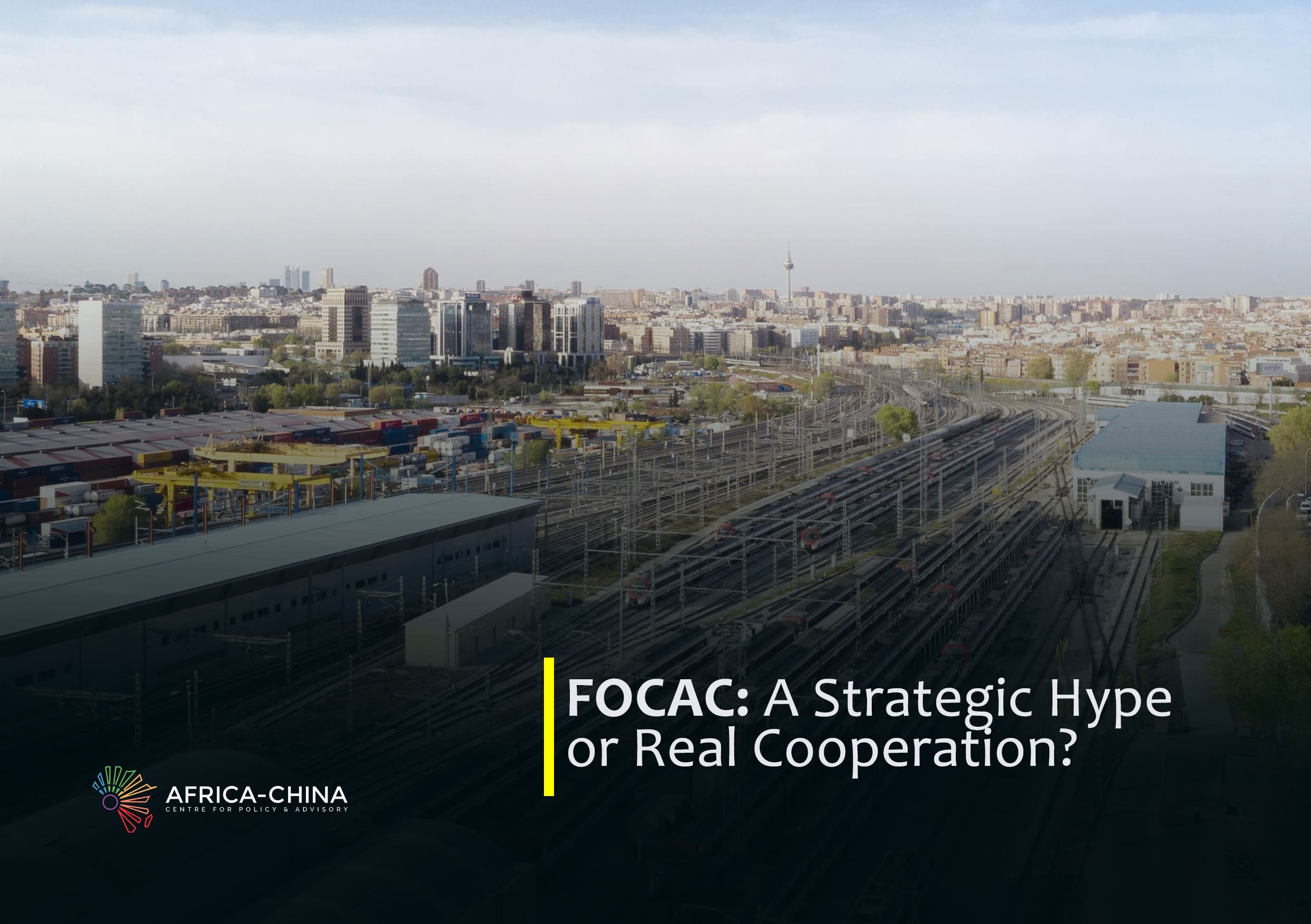Is FOCAC merely a strategic façade designed to influence global perceptions, or does it genuinely foster substantial cooperation and development?
A story that began long before the establishment of FOCAC in 2000 might be the right story to help us understand the depth of this question and other related issues.
Historical Context
Before the establishment of the Forum on China-Africa Cooperation (FOCAC), China-Africa relations were rooted in a complex shade of historical, political, and economic interactions. African nations, particularly in the in the post-colonial era, sought new alliances with the hopes developing their economies. China, just like many other countries keen on gaining interest in the resource-endowed Africa, positioned itself as a supportive partner. A monumental chapter in this budding friendship was written in the 1970s with the construction of the Tanzania-Zambia Railway (TAZARA). This railway, a marvel of its time, symbolized not just connectivity but a robust solidarity between Africa and China, proving that “a friend in need is a friend indeed.” The partnership did not stop at infrastructure.
The support was evident in cultural projects as well. Take, for instance, the construction of Ghana’s National Theatre in 1992. This grand edifice stands as a cultural bridge, nurturing deeper connections and understanding between the two countries. What’s more, the ideological camaraderie of the 1960s and 1970s saw China supporting African liberation movements, such as aiding the Zimbabwe African National Union (ZANU) during Zimbabwe’s fight for independence.
These historical interactions and many more laid the groundwork for deeper economic and political ties. As the geopolitical landscape evolved, the need for a structured mechanism to enhance cooperation became evident. Thus, FOCAC was born in 2000, not just as a diplomatic forum but as a beacon of mutual respect and shared development goals. The motivation was dual-sided: China, like many other nations, sought secure access to Africa’s abundant natural resources to fuel its rapid economic growth, while African nations were in dire need of investment and development aid free from the stringent conditions of Western donors.
So, as to whether FOCAC is merely a strategic effort to create a favorable image and influence opinions, or a substantive initiative with immense impact and benefit, is a matter of taking a closer look at the fruits borne by the tree of this long-standing partnership.
Economic Development: Building Bridges, Roads, and Futures
One of the most significant contributions of FOCAC to Africa has been in the realm of economic development and infrastructure. China’s investment in Africa through FOCAC has led to the construction of roads, bridges, railways, and ports, which are crucial for the continent’s economic growth.
For instance, the Addis Ababa-Djibouti Railway, a 750-kilometer electric railway connecting Ethiopia’s capital to Djibouti’s Red Sea port, is a demonstration of the transformative power of Sino-African cooperation. This project in particular has drastically reduced travel time and transportation costs, sustaining trade and economic activities in the region.
In addition to infrastructure, FOCAC has facilitated significant financial support through loans and grants. According to the China-Africa Research Initiative at Johns Hopkins University, China pledged $60 billion in financial support during the 2018 FOCAC summit, comprising concessional loans, grants, and investments.
The data on Chinese loan commitments to Africa further illustrates the financial dynamics of this cooperation. As shown in Fig 1, Chinese loan commitments to Africa peaked in 2016, with Angola receiving a significant portion of these loans. This financial influx has been pivotal in funding various developmental projects across Africa, from renewable energy initiatives in Kenya to industrial parks in Ethiopia. Despite fluctuations, the overall trend shows substantial financial involvement, highlighting China’s commitment to African development through FOCAC.
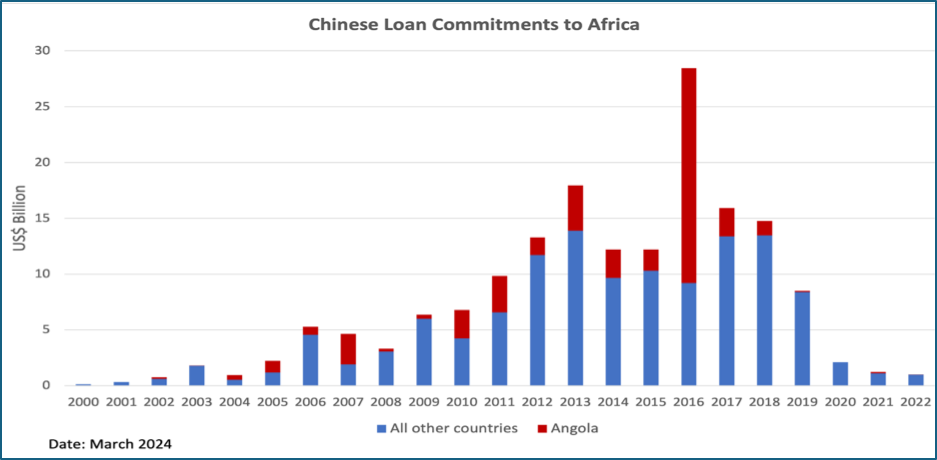
Fig 1. Chinese Loans to Africa
Source: The Boston University Global Development Policy Center.
It imperative to state that the economic impact of Chinese investments is palpable. Africa’s GDP growth has been positively influenced by improved infrastructure, facilitating trade not only within the continent but also with the global market, enabling African countries to tap into new markets to boost their export capacities, and attract further foreign investment. This economic boom, driven by FOCAC-facilitated projects, features the substantive nature of China-Africa cooperation.
Trade and Investment: Fueling Economic Diversification and Growth
Trade between China and Africa has experienced remarkable growth. Bilateral trade data reveals a steady increase over the past two decades, although fluctuations in commodity prices have impacted the value of African exports (See Fig 2). In 2022, China-Africa trade reached a record US$261 billion, with Angola, the Democratic Republic of Congo, and South Africa being the largest exporters to China. Conversely, South Africa, Nigeria, and Egypt emerged as the top buyers of Chinese goods, underscoring the reciprocal nature of this trade relationship.
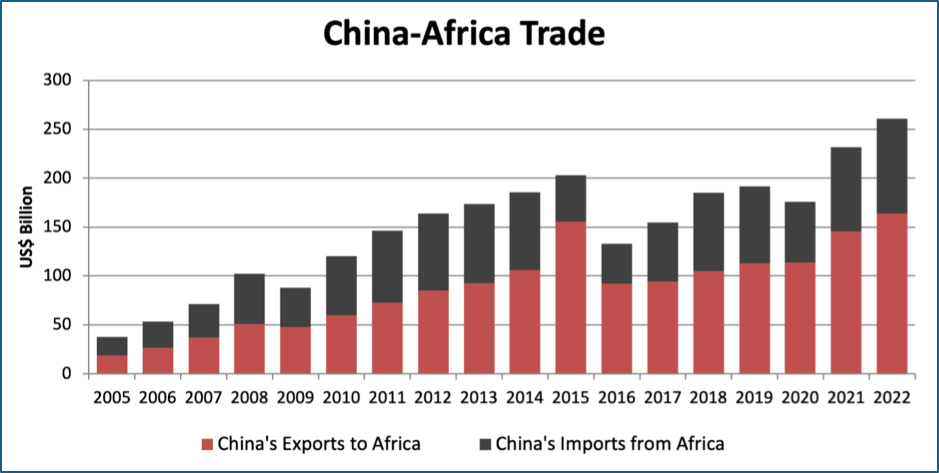
Fig 2. China-Africa Trade from 2005 to 2022
Source: UNComtrade 2023
Chinese Foreign Direct Investment (FDI) in Africa has also surged, from a mere US$75 million in 2003 to US$5 billion in 2021. This investment spans various sectors, including mining, manufacturing, and services, with South Africa, Niger, and the Democratic Republic of Congo being primary recipients. Notably, Chinese FDI flows to Africa have consistently outpaced those from the United States since 2013, reflecting China’s growing economic footprint on the continent (See Fig 3).
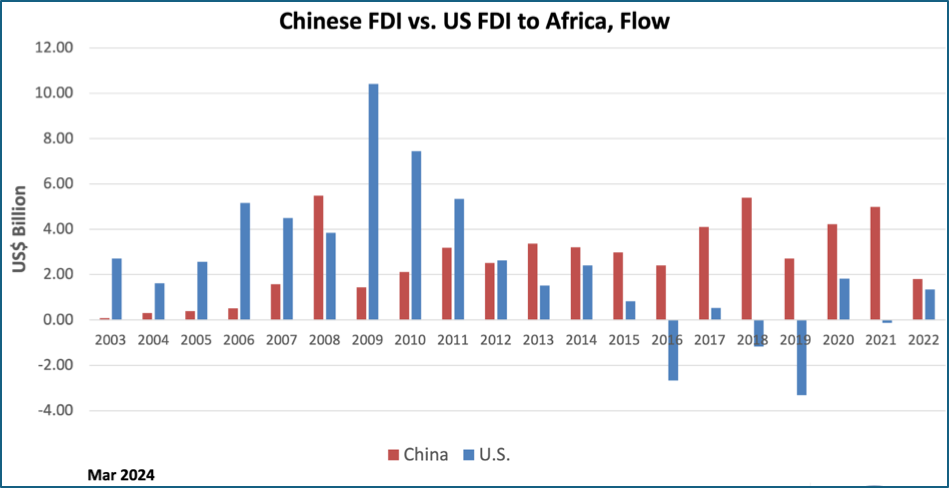
Fig 3. Chinese FDI vs. US FDI to Africa, Flow.
Source: The Statistical Bulletin of China and U.S. Bureau of Economic Analysis
These investments have spurred economic diversification, reducing reliance on traditional industries and fostering the growth of new economic sectors. For instance, Chinese investment in Ethiopia’s manufacturing sector has transformed the country into a burgeoning industrial hub, creating jobs and boosting exports.
Moreover, special economic zones (SEZs) and industrial parks developed with Chinese support have become engines of economic growth in various African countries. These zones offer attractive incentives for businesses, such as tax breaks and streamlined regulatory processes, making them ideal locations for investment and industrial activity. The Eastern Industrial Zone in Ethiopia and the Lekki Free Trade Zone in Nigeria are prime examples of how SEZs have stimulated economic development, attracted foreign investment, and facilitated technology transfer.
Human Capital Development: Empowering Africa’s Future
Beyond physical infrastructure, FOCAC has made significant strides in human capital development across Africa. Recognizing that sustainable development hinges on a skilled and educated workforce, China has invested heavily in education and vocational training programs for African youth. Scholarships and academic exchanges have allowed thousands of African students to pursue higher education in Chinese universities, equipping them with advanced skills and knowledge. For example, in the 2018 FOCAC summit, China announced plans to train 1,000 high-caliber Africans, offer 50,000 government scholarships, and provide 50,000 training opportunities in various sectors. These initiatives have enhanced the professional capacities of the African workforce including the promotion of cross-cultural understanding and cooperation between the two regions.
Vocational training programs have been particularly impactful. Institutions like the Luban Workshops, named after the ancient Chinese craftsman Lu Ban, have been established across Africa to provide technical and vocational training in fields such as manufacturing, agriculture, and technology. For instance, the Ethiopian Luban Workshop which is a joint project between TUTE and the Technical and Vocational Training Institute in Addis Ababa, are tailored to meet the specific needs of African industries, ensuring that the training is relevant and immediately applicable. The benefits of these educational initiatives are multi-faceted. On an individual level, African students and professionals gain valuable skills that enhance their employability and career prospects. On a national level, the increase in skilled labor drives industrial growth, innovation, and economic diversification. Moreover, the knowledge exchange raises a deeper understanding and appreciation of both Chinese and African cultures.
Health and Medical Cooperation: A Lifeline for Public Health
FOCAC’s contributions to Africa’s health sector cannot be overstated. China has been instrumental in improving healthcare infrastructure, providing medical equipment, and combating diseases across the continent. This cooperation has been particularly evident in the response to public health emergencies and the provision of long-term healthcare support. During the Ebola outbreak in West Africa between 2014 and 2016, China was among the first countries to provide substantial aid. It dispatched medical teams, built treatment centers, and supplied essential medical equipment and personnel. China’s swift response not only helped contain the epidemic but also highlighted the importance of international cooperation in addressing global health crises.
More recently, the COVID-19 pandemic has further demonstrated the strength of China-Africa medical cooperation. China has provided millions of doses of COVID-19 vaccines to African countries, alongside medical supplies and expertise. This support has been crucial in the continent’s efforts to curb the spread of the virus and protect its population. In addition to emergency responses, FOCAC has facilitated the construction of hospitals and clinics, the establishment of disease control centers, and the training of African healthcare professionals. The Chinese-built African Union’s Center for Disease Control (Africa CDC) is a notable example of this long-term commitment. This facility serves as a central hub for disease prevention and control across the continent, enhancing Africa’s capacity to manage public health challenges independently.
China Has Benefited Too: A Win-Win Partnership
Cooperation with Africa through FOCAC has been a win-win scenario, yielding substantial economic benefits for China too. The strategic investments and trade relationships have bolstered China’s economy, accentuating the mutual advantages of this enduring partnership. As already indicated, bilateral trade between China and Africa reached $208 billion in 2019, with China becoming Africa’s largest trading partner. This relationship has allowed China to secure a steady supply of raw materials essential for its manufacturing sector. For example, Angola has become a critical supplier of oil to China, meeting a substantial portion of China’s energy needs.
Furthermore, Chinese investments in African infrastructure projects have provided lucrative contracts for Chinese construction companies. A closer look at the trend in gross annual revenues reveals a steady increase from 1998, peaking around 2015-2016 at nearly $60 billion (see Fig 4). Since then, there has been a gradual decline, stabilizing in 2022 where the gross annual revenues totaled $38 billion, with major contracts in Nigeria, Angola, Algeria, Egypt, and the Democratic Republic of Congo accounting for 41% of these revenues. Despite the decline, these projects have generated significant income and also created opportunities for Chinese firms to expand their operations and expertise globally.
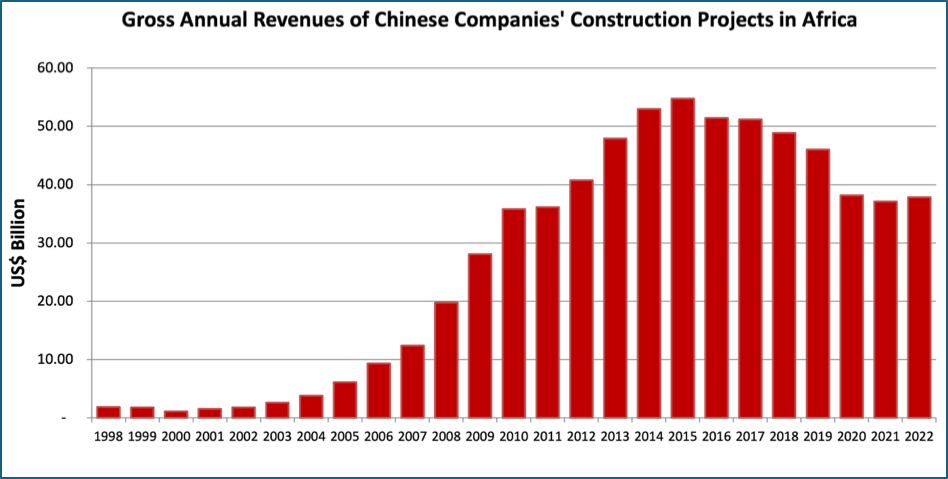
Fig 4. Chinese Contract Revenues in Africa, 1998-2022
Source: National Bureau of Statistics of China
China has also benefited significantly in terms of labor. The trend illustrated in Fig 5 shows fluctuations in the number of Chinese workers in Africa, with a notable decrease from the peak of 263,696 in 2015. This decline reached a new low of 88,371 in 2022, reflecting the impact of the pandemic, but the presence of these workers remains crucial. Their expertise and skills have been instrumental in the successful completion of numerous infrastructure projects across the continent.
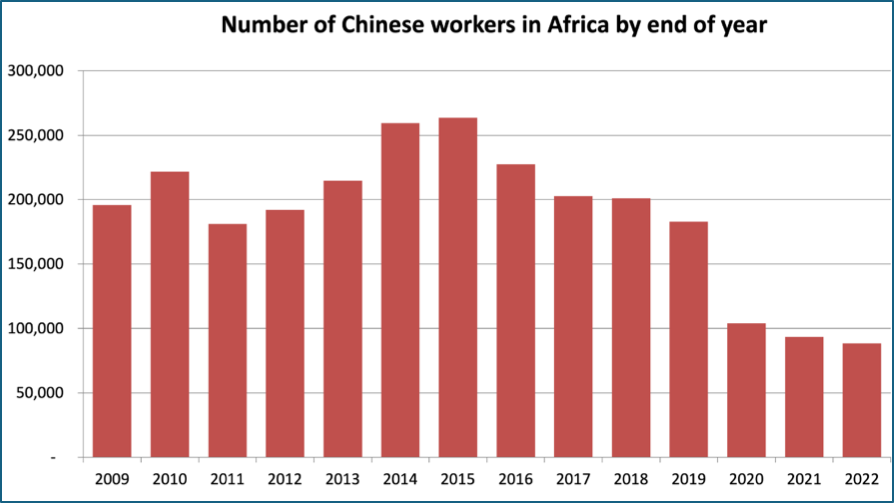
Fig 5. Number of Chinese Workers in Africa
Source: National Bureau of Statistics of China
Additionally, the establishment of Special Economic Zones (SEZs) and industrial parks in Africa has facilitated technology transfer and industrial cooperation, benefiting Chinese industries. For instance, the Eastern Industrial Zone in Ethiopia and the Lekki Free Trade Zone in Nigeria have attracted numerous Chinese enterprises, fostering a favorable environment for Chinese businesses to thrive. These zones provide Chinese companies with advantageous conditions such as tax incentives and reduced regulatory burdens, allowing them to operate efficiently and profitably. The strategic partnership with Africa has also helped China diversify its economic activities and reduce its dependency on traditional markets. By investing in various sectors across Africa, China has tapped into new growth opportunities, enhancing its global economic footprint. This diversification strategy has strengthened China’s resilience to global economic fluctuations, ensuring sustained economic growth.
Conclusion: A Testament to Genuine Cooperation
Picture the bustling construction sites of transformative infrastructure projects, the diplomatic dialogues with mutual understanding and respect, and markets where trade and investment have sparked economic growth, creating bustling hubs of activity and opportunity. These are not ordinary anecdotes. Each interaction, each project, and each agreement is a testament to the deep-rooted cooperation between these two regions.
It is safe to say that the forum is far from being a mere strategic hype. Instead, it has proven to be a substantial and impactful initiative that has significantly benefited both Africa and China. From transformative renewable energy projects in Kenya to Special Economic Zones (SEZs) and industrial parks, FOCAC’s influence is profound and far-reaching. As Africa continues its journey towards sustainable development, the enduring partnership with China through FOCAC will undoubtedly play a crucial role in shaping the continent’s future. By all standards, this assessment underscores that FOCAC is not just a platform for creating a positive image but a genuine mechanism for real, transformative cooperation.
Written by: Isaac Ankrah, Ph.D., Senior Research Fellow, ACCPA

